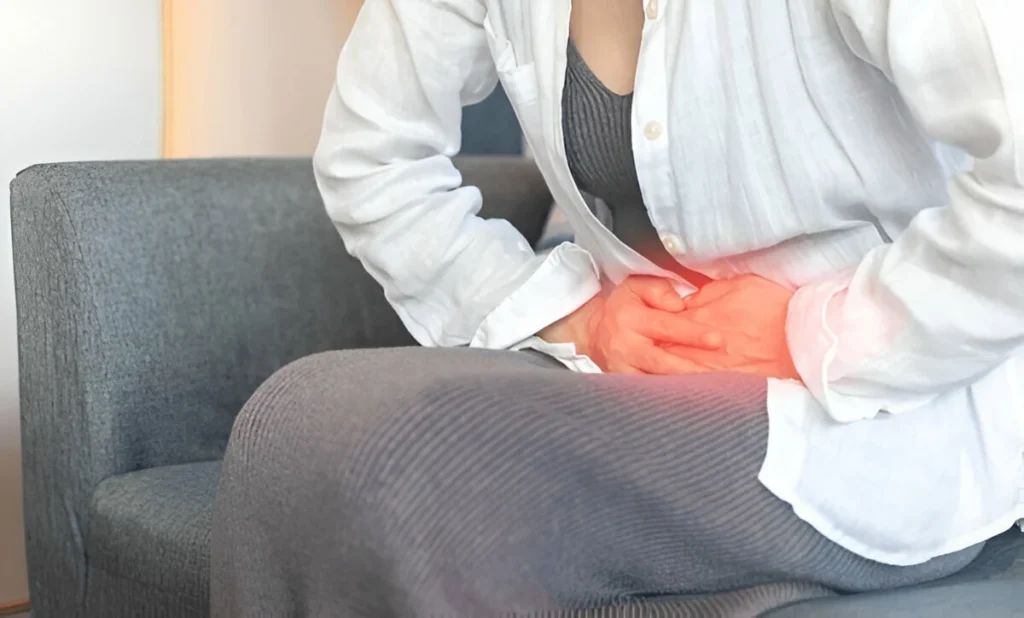-
Ganesh Talkies, Kolkata
Ganesh Talkies, Kolkata

Reduce menstrual cramps with safe, natural methods that improve comfort, backed by expert gynecological advice for long-term wellness.
Menstrual cramps are a common experience for many women, yet their severity varies widely. While medications can help, not everyone wants to rely on them each month. The good news is that natural methods, backed by science and expert recommendations, can ease discomfort and improve overall menstrual health.
Drawing from the experience of leading women’s health specialists this guide explores practical, safe, and effective ways to manage cramps without popping a pill.
Before exploring solutions, it’s important to understand what causes menstrual cramps. The uterus contracts to shed its lining during menstruation. These contractions are triggered by hormone-like substances called prostaglandins. Higher levels of prostaglandins lead to stronger contractions, reduced blood flow to the uterine muscle, and more pain.

Here are practical, non-medicated methods that many women find effective:
Heat relaxes the contracting muscles of the uterus, increasing blood flow and reducing tension. You can use:
It might sound counterintuitive, but movement can help. Exercise increases blood flow and releases endorphins, which are natural painkillers. Try:
Food plays a role in inflammation and hormone regulation. Consider:
Some herbs are known for their anti-inflammatory and muscle-relaxant properties. Examples include:
Stress can make cramps worse by increasing cortisol and hormonal imbalances. Incorporate:
Gentle abdominal massages can improve blood circulation and reduce uterine muscle tightness. Acupressure points like SP6 (on the inner leg) have been studied for menstrual pain relief.
Keeping a menstrual diary helps you prepare in advance for your most painful days. This way, you can adjust diet, activity, and self-care routines proactively.
Consistency matters when it comes to natural pain relief. Over time, these lifestyle habits can make periods more manageable:
If menstrual cramps are severe enough to disrupt your daily activities, it’s important not to ignore them. While mild discomfort is common, intense or persistent pain could be linked to underlying conditions such as endometriosis, fibroids, or pelvic inflammatory disease, all of which can mimic or worsen menstrual cramps. Seeking guidance from a trusted women’s health specialist like Dr. Megha Khanna, widely regarded as the best lady gynecologist in Kolkata, can help ensure you receive an accurate diagnosis and a personalised care plan. Early consultation not only relieves discomfort but also supports long-term reproductive health.

Q1: Can menstrual cramps get worse with age?
Yes, for some women, cramps intensify over time due to hormonal changes or underlying conditions. A medical evaluation can help identify the cause.
Q2: Does drinking coffee make cramps worse?
Caffeine can constrict blood vessels, potentially increasing discomfort for some women. Switching to herbal tea during menstruation may help.
Q3: How early should I start heat therapy?
You can start applying heat as soon as you notice menstrual discomfort, even before heavy bleeding begins, to minimize pain escalation.
Q4: Can yoga really help with cramps?
Yes, yoga encourages blood circulation, reduces stress hormones, and stretches tight muscles—helping ease discomfort naturally.
Q5: When should I see a doctor for cramps?
If cramps are persistent, unusually severe, or accompanied by other symptoms like heavy bleeding or fever, consult a gynecologist promptly.
Holistic menstrual health is about more than just finding ways to reduce menstrual cramps—it’s about supporting your body year-round. Trusted gynecologists emphasize a proactive approach: regular check-ups, early intervention for abnormal symptoms, and consistent healthy living to maintain hormonal balance and overall well-being.
For example, experienced practitioners often guide women through personalized lifestyle adjustments alongside medical monitoring, helping them achieve sustained relief without over-reliance on medicines.
While menstrual cramps are a natural part of the menstrual cycle, they don’t have to dictate your comfort or productivity each month. By combining heat therapy, gentle exercise, dietary adjustments, stress management, and cycle tracking, you can greatly reduce menstrual cramps naturally.
And remember—if your pain is persistent or worsening, a thorough evaluation from a professional gynecologist can help uncover underlying causes and offer long-term solutions. Menstrual health is deeply personal, and with the right care, your monthly cycle can be more manageable and less disruptive.